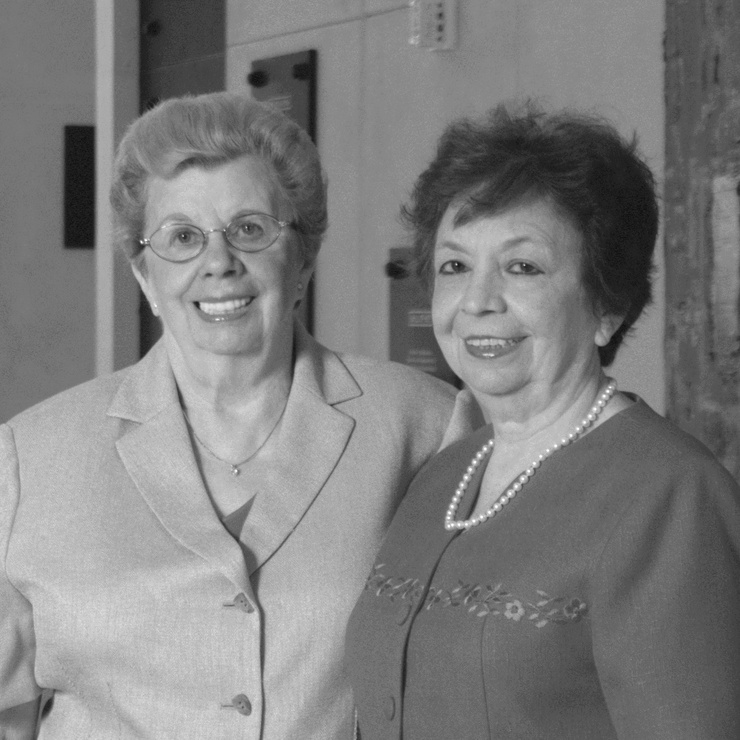-
 Thea Singer (left) with her sister Vera Blum in 2006. Credit: Holocaust Museum Houston/Mike Marvins
Thea Singer (left) with her sister Vera Blum in 2006. Credit: Holocaust Museum Houston/Mike Marvins
Born: Thea Olejniczak
Berlin, Germany
February 24, 1929
Died:
January 1, 2014
When sisters Thea Singer and Vera Blum were very young children, they enjoyed playing with the non-Jewish children in their Berlin apartment building. But by the time Thea began school in 1935, the Nazis had been in power for two years and the climate had begun to change. Thea remembers how she suffered at school: "The kids already knew that I’m Jewish. They were making nasty remarks: ‘You Jew. You’re a pig. You’re swine.’"
In 1940, their mother, Cella, gave birth to a third daughter, Gilda. The family managed to stay together until 1942, when the girls’ father, Max, was ordered to report to police headquarters for what he thought was a routine appointment. He did not come back. Later, the family learned that he had been sent to Stettin, a concentration camp north of Berlin. After Max’s disappearance, Cella went into hiding with her three girls. Taking advantage of the chaos offered by Allied bombing raids, they moved from house to house, sometimes living among ruins. They were constantly hungry. One day Cella went out in search of food and did not return. She had been arrested and incarcerated at Gestapo headquarters. Suddenly, Thea found herself the sole protector of her two young sisters. Terrified and uncertain, she considered taking them to live with relatives in Poland.
Fortunately, an acquaintance named Hela Falkenstein invited the girls to live with her, instead. Hela had been a convert to Judaism but she converted back to Christianity after Hitler came to power, in order to protect herself and her family. Until 1945, the girls spent much of their time in the relative safety of Hela’s home, although they also lived on their own sometimes. Using false identity papers, Thea found a factory job that provided a meager income. The sisters took shelter in the bombed out shells of buildings, sometimes bartering the family’s jewelry for food.
Thea, Vera, and Gilda were at Hela’s apartment on the day in February 1945 when their mother reappeared, having been released from the Gestapo prison where she had suffered beatings and starvation. "We were absolutely in shock," says Thea. "Suddenly, I just see a skeleton walking down the street." When the war ended several months later, Max returned as well. Although he recovered physically, emotional healing came much more slowly. For months, he jumped in terror every time he saw someone in a uniform.
In November 1945, Thea and Vera departed for Palestine with a group of other young survivors. Their parents and Gilda followed in 1948. Both Thea and Vera served in the Army during Israel’s War of Independence. In Israel, Thea met her future husband David Singer, a survivor from Romania. Married in 1951, they have three children, Dov, Dorit, and Kim. In 1957 they settled in Houston, where David had a career in the jewelry business and Thea worked as a real estate agent. Vera, Gilda, and their parents also settled in Houston.
Parents:
Max Joseph Olejniczak (Olin), survived
Cella Moszkowicz Olejniczak (Olin), survived
Siblings:
Vera Blum, survived
Gilda (Gitl) Olejniczak, survived
